6 Dangers of Bottle Feeding Your Baby In Bed
As parents, your little one’s health and safety are paramount to you. You would do everything you can to ensure they are happy, safe, secure, and growing into healthy toddlers, from baby-safe furniture to covered electrical sockets, feeding on time to constant nappy changes.
One of the decisions parents need to make is deciding between breastfeeding and bottle feeding. As you pick the latter, often parents don’t realise that it comes with certain precautions. They fail to recognise the risk of bottle-feeding a baby in bed. Read on to find out why you shouldn’t put your baby to bed with a bottle in her mouth. These facts help raise awareness of the harm a seemingly innocuous task like bottle-feeding your baby in bed might cause.
Reasons Why You Should Not Bottle Feed Your Baby In Bed
While feeding in bed might seem like a convenient option for parents, there are many disadvantages of bottle feeding as your infant lays down. Here are some of the major factors to consider:
1. Danger of Choking
Bottle feeding in bed works very well for you and your little one. You can relax while your little one is propped up in his crib. You hold the bottle, and a steady stream of milk gushes into his tiny mouth. But there is a glitch here – more of a potential danger. Sometimes, the liquid flows fast, and your baby is still tiny and cannot swallow milk at this rate. This is when there is a risk of the baby getting choked. There is also a threat of milk entering the windpipe or even the lungs, worsening the situation (1).
2. Danger of Suffocation
Are you using all those soft, brightly-coloured pillows as props in your baby’s crib when you give him the bottle? Your little one might love playing with all those attractive colours when awake, but once he falls asleep, there is a risk that he might wriggle and shift and, consequently, bring all those soft props upon his face and nose, causing suffocation (2).
3. Risk of Tooth Decay
Tooth decay does not sound as scary as the previous two, yet it has its downfall. You wouldn’t want your baby’s smile to suffer. In addition, once he starts eating solids, you would want him to bite, munch, and chew all those power-packed nuts you stock exclusively for him. Your baby might fall asleep before he swallows the last gulp of milk. The sugar in the formula would coat your baby’s gums and tiny teeth, causing decay (1). Of course, the teeth are only temporary, but according to the American Dental Association, they also provide space in his mouth for permanent teeth (3). You wouldn’t want this space to be permanently damaged.
4. Risk of Ear Infection
An ear infection is painful and can make your baby cranky. He is helpless because he is unable to tell you about his aches. As a parent or caregiver, you might feel as helpless as him because you do not know why your little one is crying. Did you know bottle feeding in bed is one of the primary causes of ear infections? Sometimes, your baby might not swallow the milk until the last gulp. This last gulp of milk might pool inside his mouth, steadily trickling into his ear, causing bacteria to get into his Eustachian tubes (1).
5. Development of Asthma and Wheezing
Studies show that bottle-feeding your baby in bed can lead to asthma and wheezing in the early stages of their childhood, particularly for babies whose family history includes being prone to allergies and asthma (1).
6. Associating Sleep with Feeding
Another risk associated with feeding in bed is that your baby falls asleep while bottle feeding. This might cause them to link sleep time with feeding, requiring feeding to fall asleep (1).
However, all these risks should not deter you from feeding your baby with a bottle. All you need to do is exercise a little caution and take a few precautionary measures:
- Never let your baby fall asleep with the bottle in his mouth.
- Always wipe his mouth dry after every feed.
- Make sure the nipple hole is of the right size.
- Never forget to burp your baby after every feed.
Tips for Weaning Baby Off The Bottle At Night
To prevent your baby from developing a dependency on bottle-feeding at night, it is imperative to wean them off this habit slowly. Here’s how you can do so!
1. Act as Their Comfort Blanket
Providing your baby comfort through cuddles and hugs can give them a sense of security and help them fall asleep more easily without needing a bottle to lull them to sleep. Pat their back, rock them to sleep, or narrate a soothing bedtime story to get your little one to take their much-needed Zzzs!
2. Push Their Bed Time Ahead
Pushing your baby’s sleep time can help create a gap between their last feed and the time they fall asleep, causing them to get tired and fall asleep without needing a bottle. Ensure you don’t push it ahead too much, as this can mess up their sleep pattern. As your baby gets accustomed to sleeping without bottle feeding, you can slowly return their sleep time to normal.
3. Consistency is Key
As you follow the first two tips, it is important to maintain consistency with your baby’s sleep schedule to avoid disrupting their sleep patterns. This also allows them to soothe themselves if they wake up in the middle!
FAQs
1. Are there side effects to bottle feeding in bed?
Prolonged bottle-feeding in bed can lead to a rise in dental cavities due to a rise in dental flora, and can also disrupt your child’s sleep schedule, lead to respiratory diseases, and affect their oro-facial development (4).
2. How do I stop my baby from bottle feeding at night?
Apart from the methods mentioned above, you can also try increasing their feeds during the day to keep them full and prevent them from needing a bottle at night. Ensure that you don’t overfeed and stick to their caloric requirements.
Remember, bottles by themselves never pose as potential hazards for your baby. It’s the way the bottle is held and the way the milk gushes into his mouth that creates risks for him and nightmares for you. Follow the above steps and ensure your baby is always well-fed and happy because these moments with your little one will never return. Make the best of bottle feeding and create a bond with your baby.
References/Resources:
1. The Risk of Bottle Feeding in Bed; Cleveland Clinic; https://health.clevelandclinic.org/babies-and-bottles-in-bed; September 2022
2. Why Avoid Propped Bottle Feeding; Child Development Programs; https://www.childdevelopmentprograms.ca/wp content/uploads/2021/01/Whyavoidproppedbottlefeeding.pdf
3. Why Baby Teeth Are Important; Americal Dental Association; https://engage.ada.org/p/phys/why-baby-teeth-are-important-1790
4. Kim, H. Y., Han, Y., Pyun, Y., Kim, J., Ahn, K., & Lee, S. I.; Prolonged bedtime bottle feeding and respiratory symptoms in infants; Asia Pacific allergy; https://www.ncbi.nlm.nih.gov/pmc/articles/PMC3206237/; 2011
Also Read:
Choosing the Right Bottle for your Baby
Bottle-Feeding Problems and Their Solutions
Advantages and Disadvantages of Bottle Feeding
Bottle-Feeding Mistakes To Strictly Avoid With Your Baby
Was This Article Helpful?
Parenting is a huge responsibility, for you as a caregiver, but also for us as a parenting content platform. We understand that and take our responsibility of creating credible content seriously. FirstCry Parenting articles are written and published only after extensive research using factually sound references to deliver quality content that is accurate, validated by experts, and completely reliable. To understand how we go about creating content that is credible, read our editorial policy here.






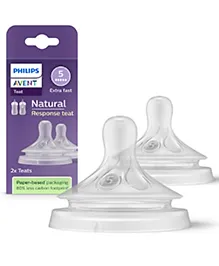
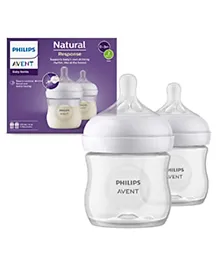
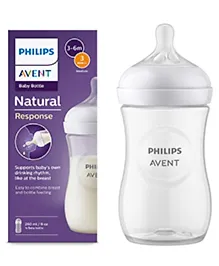
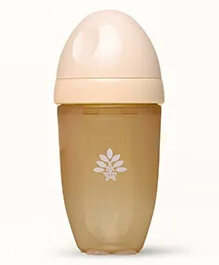
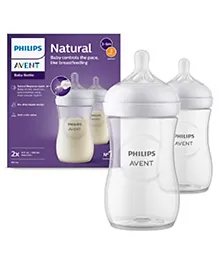

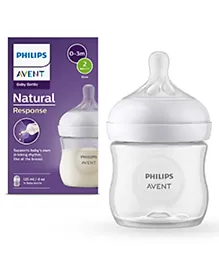
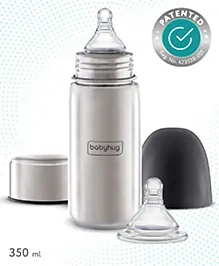
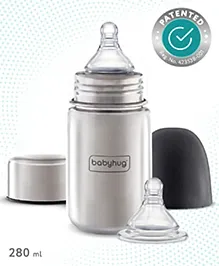
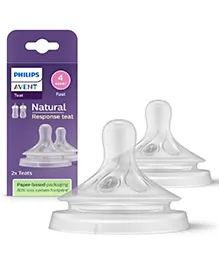
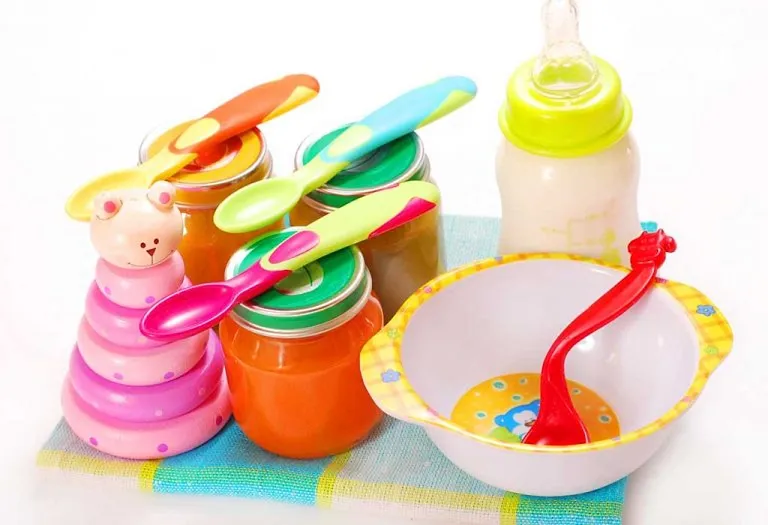
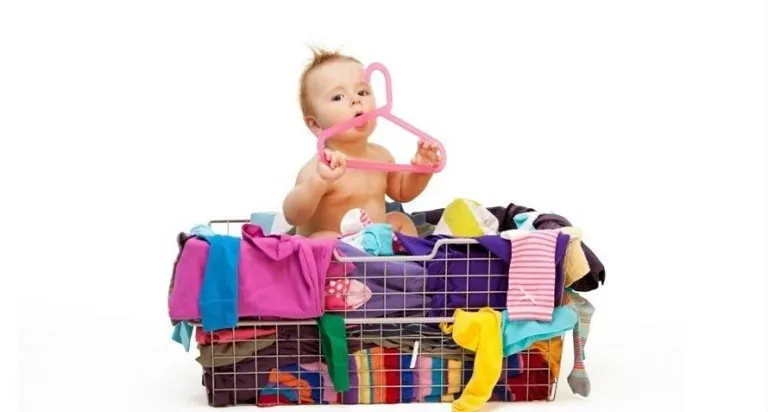
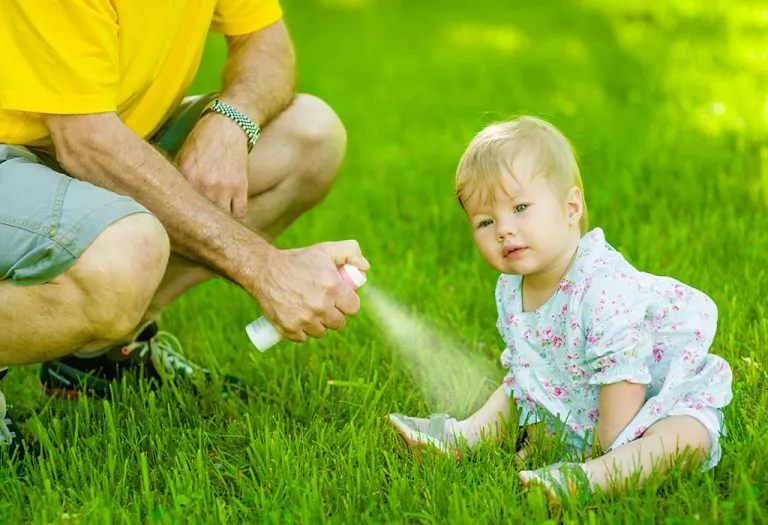
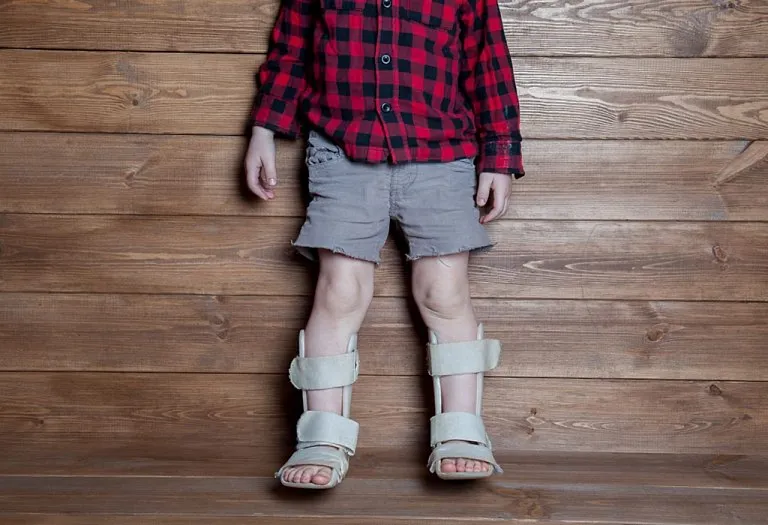
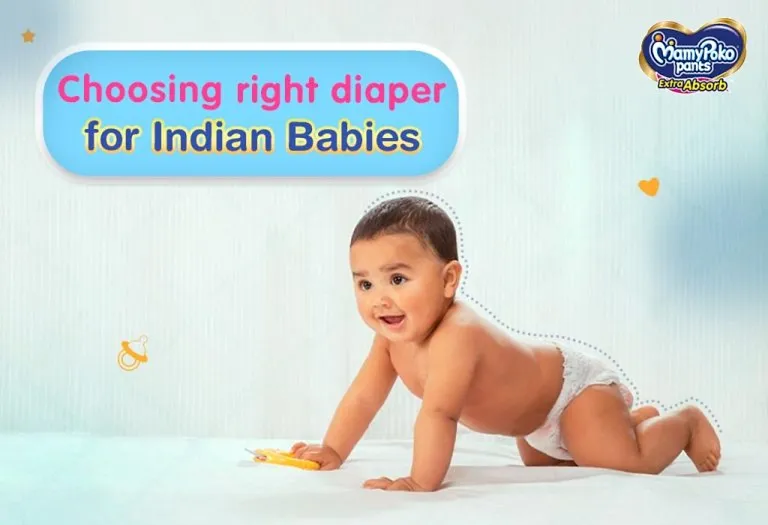
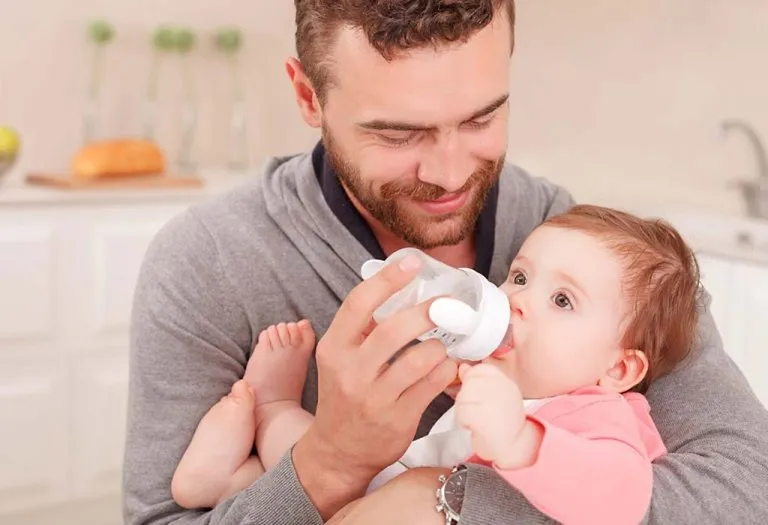

.svg)


















